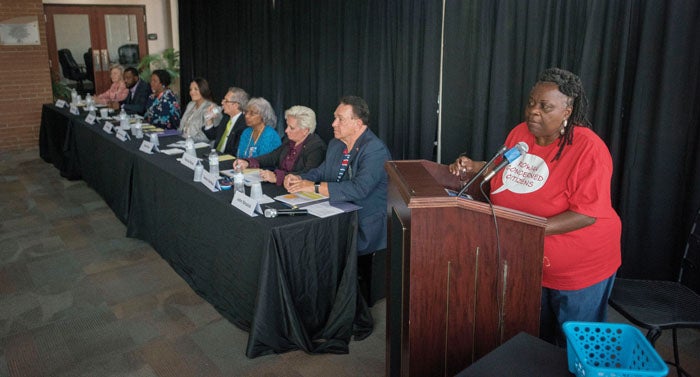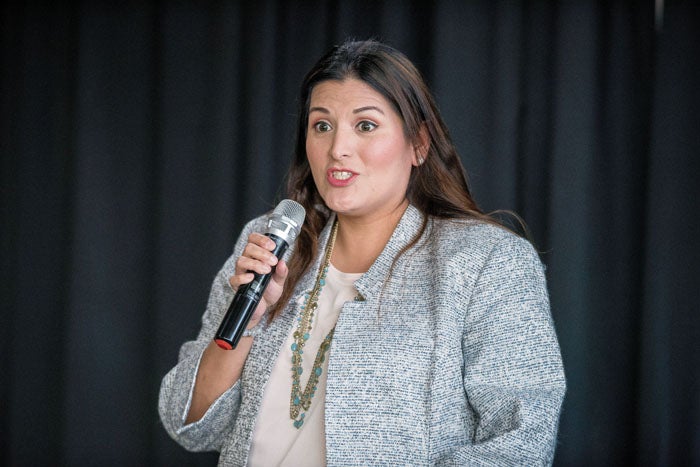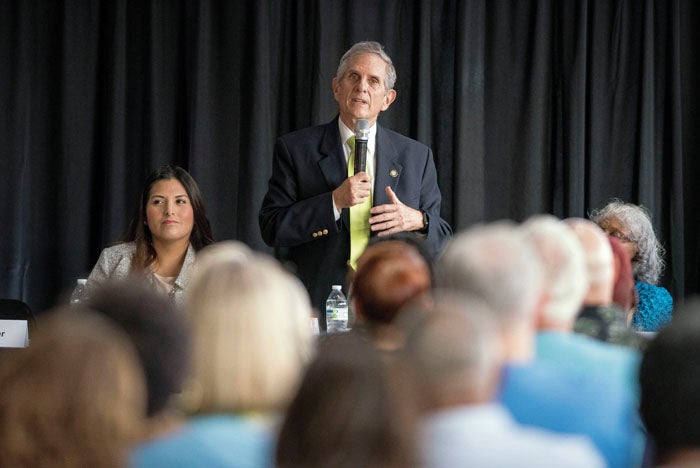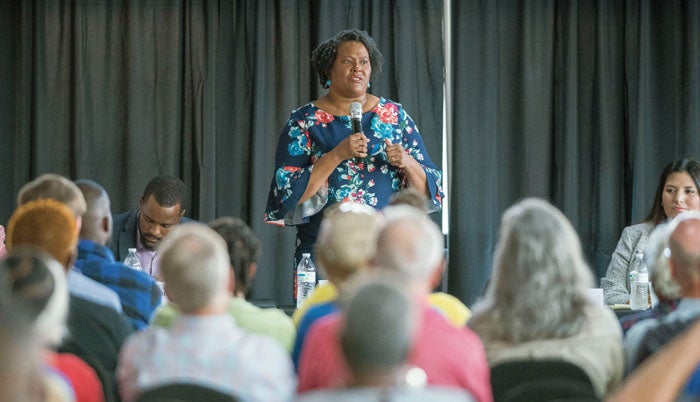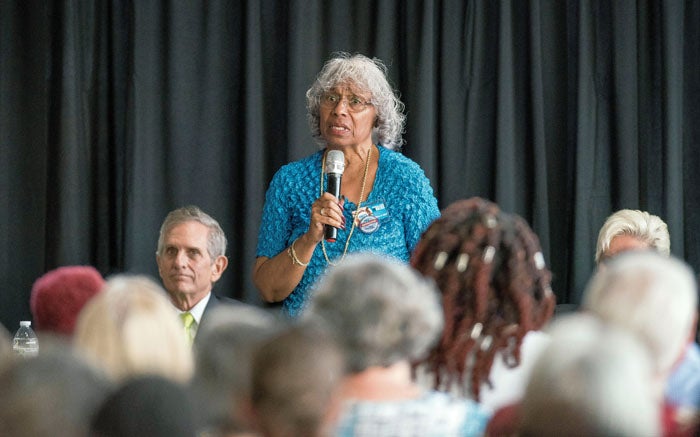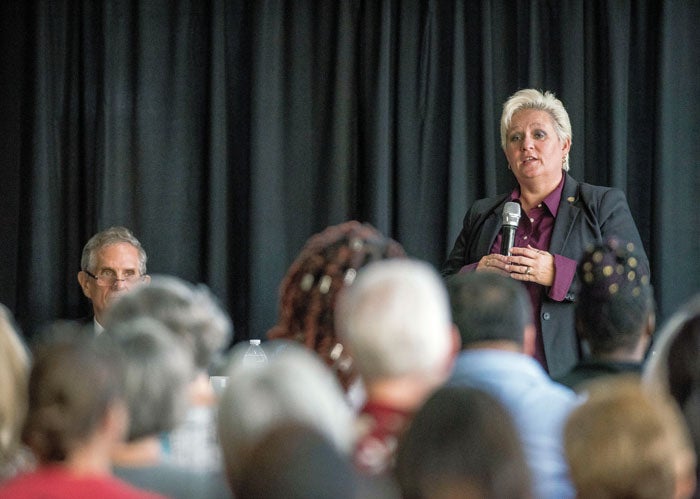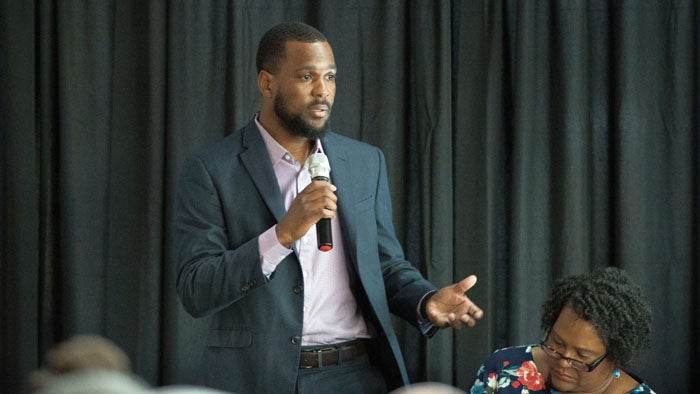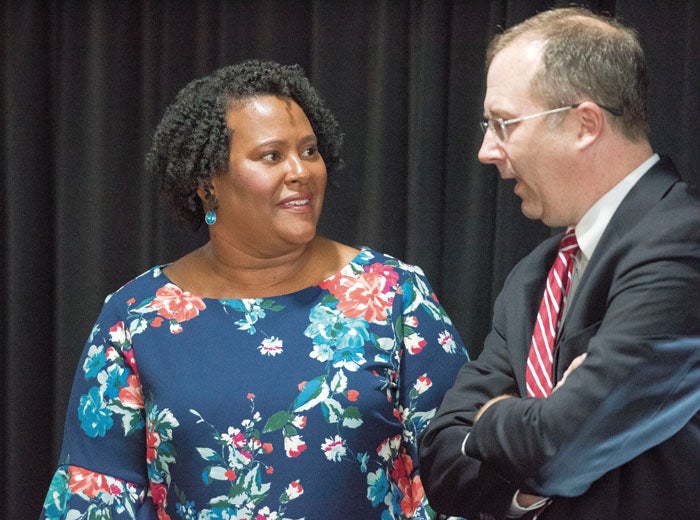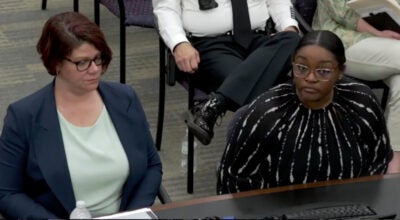Salisbury candidates discuss race relations, economy
Published 12:00 am Friday, September 27, 2019
SALISBURY — The first 2019 City Council candidate forum on Thursday quizzed incumbents and four challengers on issues and priorities, including poverty, the Confederate statue “Fame” and a separate mayoral election at Hood Theological Seminary’s Aymer Center.
The forum was hosted by Rowan Concerned Citizens and moderated by the Rev. Dee Ellison. Voters were able to ask specific questions to the candidates, but all candidates did not answer the same questions.
Two people wrote in questions about “Fame,” which stands at the intersection of Innes and Church streets.
Mayor Pro Tem David Post said that as a Jew, he is “very sensitive to the monument” but doesn’t think the government has the right to move the monument because of legal hurdles. He said monuments and Nazi flags were not left after World War II and that concentration camps were turned into educational opportunities.
“I frankly find the wording on the side troublesome to me, to a lot of people in this community,” Post said. “I understand where the conversation is going. It’s unfortunate. I happen to believe that the band-aid of racial discourse has been ripped off in — not just our community, but nationwide — other than poverty it is the biggest issue our country and our city face today.”
Candidate P.J. Ricks said “Fame” has “disturbed us” for many years and that the city should look to other municipalities for solutions.
“We know that we can’t legally move it, but we can teach our children and help our citizens understand that time, although none of us agree with it, but we can understand that time and how we can make educational opportunities from something that is not good for our city,” Ricks said.
The City Council needs to do something to mitigate the message on the statue since Bell Tower Park, right next to it, will bring visitors to Salisbury, she said.
Council member Tamara Sheffield said she understands “Fame” is personal to people on both sides of the issue. It is a piece of art and it represents hate, Sheffield said.
There are unique legalities around the statue, she said. Sheffield commended fellow council members for listening to residents through a forum over the summer regarding “Fame.”
She said she hopes laws will change that will allow the city to do something about “Fame.”
Another resident asked candidates their thoughts about other Confederate symbols in Salisbury — not limited to “Fame” and including street names.
Candidate John Struzick said he’s not in favor of “anything that hurts anybody” but that he thinks it’s not practical to change everything.
“Does changing it make anything go away?” he asked. “No, we can’t change everything. It is what it is. It was what it was. We just have to try to advance and move on.”
And Mayor Al Heggins took time from answering another question to offer her opinion about Confederate symbols. Heggins said leaving the past in the past is not always easy to do.
“How many women in the past were told because they were a rape victim to ‘leave the past in the past’? This is why we have this tremendous ‘Me Too’ movement that’s going on right now because women got so tired of being suppressed,” Heggins said. “When we deal with the Holocaust and when we deal with 9/11, we are told ‘never forget.’ Unfortunately when we begin to have conservations about slavery and the impact of slavery in our country, institutional racism, people say, ‘Leave that in the past,’ but we can’t.”
The audience erupted in applause.
Councilman Brian Miller also broke from a different response to talk about the question of memorials. Miller said he thought the issues the nation is facing were behind us but has since realized they aren’t. As a Planning Board member, Miller said he worked alongside Albert Stout, a Livingstone College student who sat at a counter to protest. People like Stout should be memorialized and the city should focus on what it can celebrate, he says.
Challenger Giannina Monzon began the forum by noting that she’s a newcomer to politics. “I’m a concerned citizen, so I think I’m in the right place,” she said.
Monzon said she wants to bring diversity to the council. Her focus is on collaboration through community groups. Talking about a separate mayoral election, Monzon said she would like to keep things the way they are — the top vote getter traditionally becomes mayor — because the council may lose out in having a great member if they didn’t get the most votes. She said voters will decide.
Salisbury-Rowan NAACP President and candidate Gemale Black said he is for a separate mayoral election, since Salisbury is a big enough city and voters should be able to choose who they want to be mayor.
Economy was another focus point for questions — from questions about what council members would do to address pockets of poverty to adding diversity to the city’s employment and helping small business owners.
Councilwoman Karen Alexander said a pressing issue for Salisbury is affordable housing. She spoke of the work the Salisbury Community Development Corp., of which she is a board member, including selling homes to single mothers in the West End. She said the city has invested $9 million in that neighborhood.
Economic development along with workforce development were priorities mentioned by Alexander as well. She said focusing on opportunities for entrepreneurship and supporting those seeking to build their businesses, especially through the Minority Business Council and Women in Business, is important..
Challenger Ladale Benson was absent from Thursday’s forum.


